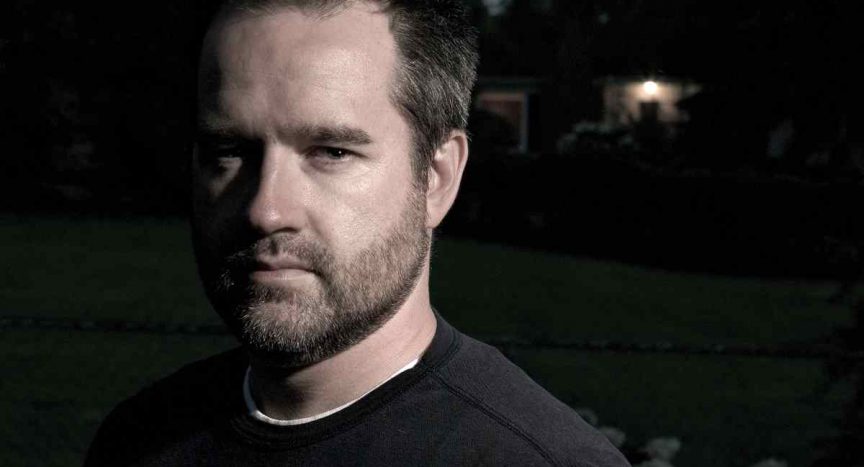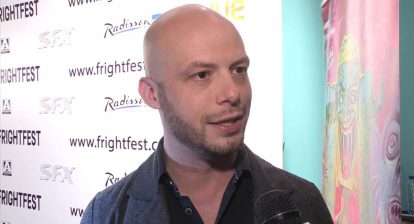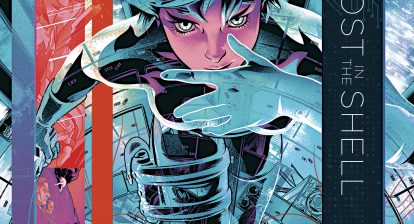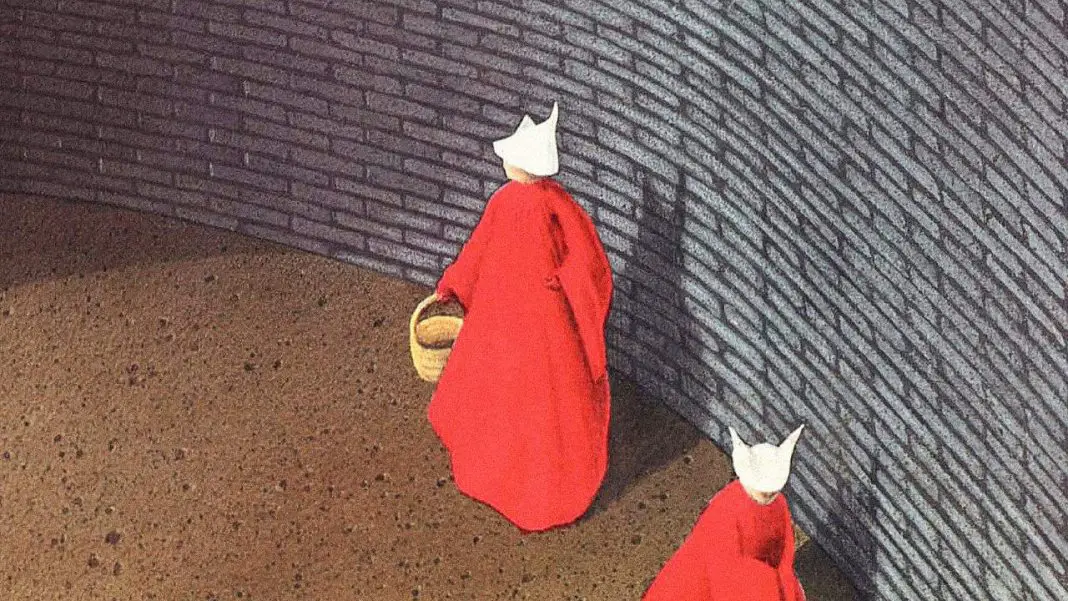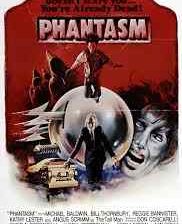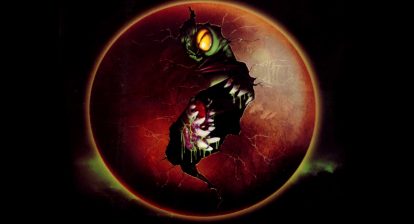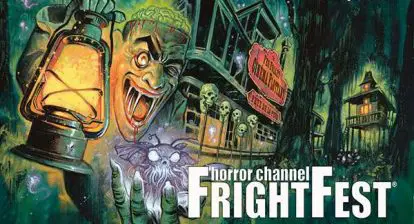Wicked Horror recently had the occasion to sit down with director Matt Osterman to discuss his new film, Hover. We got the lowdown from the director on the use of drones in his film, his approach to onscreen death, working with super producer Travis Stevens, and much more!
Hover is now in theaters and will be available via Video on Demand beginning July 3rd, 2018.
Wicked Horror: The drones in HOVER are very similar to drones that are available today. What choices did you make in terms of capturing the look and movement of the drones in HOVER?
Matt Osterman: We didn’t really want to do a movie that was set kind of in the future, kind of divorced from the reality of today, so we wanted to set this in the very near future, so it was kind of extrapolating what we have today and pushing it a little bit. All of a sudden, in the next five to ten years, drones aren’t going to be bladeless, hovering via some black energy, so we tried to think, what do we have today? What can we do to make it seem still somewhat grounded? So, it kind of raises the stakes and makes it seem a little bit more real, and, obviously, it’s a movie, so we wanted to make them look cool, and all that fun stuff, too. And we had a great prop designer who kind of headed up that whole design of those, and I think he did a great job.
WH: The are several scenes shot from the perspective of the drones. What was the process of bringing the drone’s perspective to life?
MO: We were kind of inspired by, really, a lot of slasher films, how often times they’ll switch to the perspective of the killer. You’ll see the killer’s POV from like the woods, like onto the house or something. When you do that, you give the audience information that the main characters don’t have, and that often kind of amps up the anxiety a little bit, because we kind of know what’s coming, or what’s about to happen, and our heroes, our protagonists, are still a little bit in the dark about that, so that was the primary reason for it, as well. And plus, when you have a bunch of drones flying everywhere, you kind of want to switch to that POV because it’s kind of beautiful landscape and interesting to look at, so I think for those two reasons we kind of used that tool.
WH: Two primary themes of Hover are traditional agriculture and advanced technology. There’s several sequences of advanced drones working on farms and in fields. Was it difficult melding these themes during filming?
MO: No, not really. I think we tried to take the perspective that agriculture and farmers are going to use the tools they have available to them, and that’s always kind of been the case, you use the best tools for the job, and, with the onset of this sort of technology, we’re already seeing it happen. There are drones out there for monitoring fields, and there’s a lot of corporations working on it pretty hard, because they offer a ton of advantages over heavy machinery or boots on the ground. So, I think it was a pretty quick leap for us to make, because it’s already happening, and it does make sense in a lot of different ways.

WH: This film is set in the near future, as you said earlier, and the technology in the film very much reflects that setting. What statement do you feel that this film makes regarding the current state of technology and where it’s headed?
MO: I don’t know if we have a grand statement other than be vigilant and buckle up. I’m personally a little scared of where things are headed because these things are becoming more powerful, and unchecked technology in the hands of humans who are not without fault can lead to some interesting scenarios. And you’d like to think often the adults in the room will stand up and make sure worst-case scenarios don’t happen, but that’s not always the case, unfortunately. I personally think, and I hope I’m wrong, that things are going to get worse before they get better. In terms of technology, it does seem like these things are kind of advancing at a quicker pace these days. It almost seems like we have one foot in the future already, and that’s only going to accelerate with the advance of AI, because faster AI creates a faster and better AI creates a faster and better AI, so there’s going to be an extrapolation of that technological curve, and it’s going to be really interesting. I mean, what a time to be alive. Let’s hope we can make it out alive.
WH: There are vastly different types of death in HOVER, from peacefully passing on to outright exploding heads. What details were important to you in terms of filming the contrasting types of death in the film?
MO: Honestly, it was just in service to the story. I don’t think we really thought too hard about the contrast between those two things. I do think that’s a good point you bring up, there is a really interesting dichotomy there, and I think that’s pretty apparent now that you say it. The fact that we have these transitions that happen that are quote unquote volunteer transitions, where you sign up for, and that’s a much more peaceful thing. But, really, under the surface, we know that there’s a conspiracy happening there, so it is a little bit of a…it seems like a teaspoon of sugar will help the medicine go down. And then you contrast that with death ultimately by, I don’t know if I’m giving a spoiler away here, but by the same kind of corporation, but in a much more violent and visceral and immediate kind of way. Again, just to reiterate, I don’t think we meant to put a pin in that dichotomy there, but, yeah, it definitely is an interesting insight.
WH: Alright, well that’s all the questions I had, but since we have a few extra minutes, I just wanted to ask you, is there anything you wish I would have asked that you didn’t get to answer? And if so, we could do that right now.
MO: Yeah, that’s a good question, let me see. One thing that could be interesting is that the writer of it is also the star, so I know that’s always been a popular question for people, what was it like directing the writer of it? Is that something that you’d like me to speak on for a few?
WH: Yeah, that sounds great.
MO: When I initially got the project and we started talking with Travis Stevens, the great producer on this, I was nervous about working with Cleopatra in that regard because when she’s on set she needs to be wearing her actor hat, and not necessarily the writer hat. And if she’s worrying too much about the script, or the words, she’s not focused on her character, and would she want to throw some muscle around, and put her foot down and say, “No, this is the way we wrote it, this is the way we’re going to do it.” But, immediately, the first conversation I had with her, those concerns were alleviated. She was a great collaborator and a great partner, and I think it was really helpful for me because she was available to kind of have a meeting on the mound, to talk about a new idea, or maybe a new opportunity popped up, or maybe there was a problem and say, “Hey, this doesn’t work anymore.” And we could kind of have a quick mind meld and say, “Okay, here’s our way out, this is what we should do.” Or maybe a line wasn’t landing and we could work together to find a new way to work that out, so I think it was a huge asset that she had the ability to wear both hats. I’m sure that can go sideways in other sort of working relationships, but this one definitely worked in our favor.
Syfy Films’ HOVER is now in theaters and will launch on Video on Demand beginning July 3rd, 2018.
